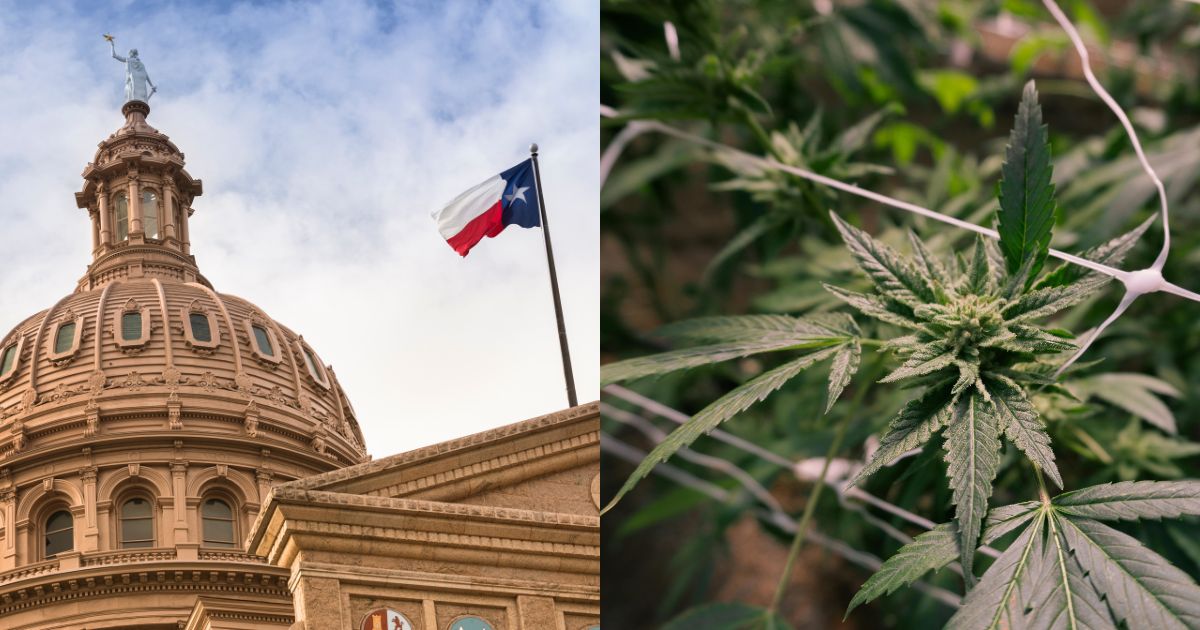The Texas House State Affairs Committee last week voted to advance Senate Bill 1870 (SB 1870), a controversial piece of legislation already approved by the Texas Senate. If passed in the House and enacted as law, this bill would prevent Texas municipalities from placing measures to decriminalize marijuana on local ballots, which effectively undermines the power of voters to influence local cannabis policy. This comes as a shock for advocates, cannabis users, and local residents, who see it as a direct contradiction to the democratic process and a heavy blow to cannabis reform efforts in Texas.
What SB 1870 Proposes
SB 1870 aims to prevent cities and counties from enacting measures that decriminalize marijuana or other controlled substances, effectively barring local governments from proposing ballot initiatives that would hinder the enforcement of state drug laws.
The bill includes several provisions. Municipalities that attempt to violate these restrictions could face fines of $25,000 for the first offense and up to $50,000 for subsequent offenses. Additionally, the bill grants Texas’s attorney general the authority to expedite legal proceedings against cities that do not comply with the law. Appellate courts are also required to prioritize these cases and handle them “with the least possible delay.”
Further amendments allow private citizens to report violations through forms managed by the attorney general’s office. This provision has raised concerns about potential governmental overreach and its implications for local autonomy.
A Threat to Voter-Initiated Cannabis Reform
For cannabis users and reform advocates in Texas, this legislation feels particularly unjust, as it disregards the voices of voters in cities like Austin, San Marcos, and Denton, where cannabis decriminalization has already been approved in elections. These measures represent communities taking action to prioritize progressive drug reform and improve the fairness of enforcement around marijuana possession.
To local voters, SB 1870 appears to prioritize state lawmakers’ agendas over the democratic will of the electorate. Cities where voters have clearly voiced their preference for less punitive cannabis policies now face the prospect of having those decisions nullified. This undermines not just advocacy for cannabis reform but also faith in the democratic process.
The larger question at play here is why elected officials seem so resistant to respecting their constituents’ choices regarding cannabis policy. Advocates for reform argue that those in public office hold their positions because of the votes of the very people whose voices they are now suppressing.
The ability to enact policy change at the local level is a foundational aspect of democracy. Whether through electing representatives or voting on ballot measures, citizens deserve to have their collective decisions implemented—not overruled by state lawmakers with different priorities. Cannabis users, in particular, have been vocal on this issue as they see the decriminalization of marijuana not just as a progressive reform but as a step toward justice and equity.
The Bigger Picture
The rollback of voter-approved cannabis decriminalization is part of a larger pattern of legislative resistance in Texas. While states across the country are moving toward both decriminalization and legalization of marijuana, Texas seems intent on maintaining hardline policies. Currently, marijuana possession remains a criminal offense in the state, with harsh penalties for minor infractions.
Meanwhile, as states see economic benefits from legalized cannabis, Texas risks alienating potential business investments and revenue opportunities by holding onto outdated laws. There is growing concern that Texas’s reluctance to progress will leave the state at odds with national legalization trends, isolating it from the benefits enjoyed elsewhere.
For reform advocates, the passage of SB 1870 would undoubtedly present a setback, but many remain committed to pushing forward. Ground Game Texas, a leading advocacy group, has indicated that it will continue to champion cannabis reform in the state. Their approach emphasizes educating voters and ensuring that public opinion continues to influence policy discussions, despite efforts by lawmakers to curtail voter-driven initiatives.
The resistance to the bill from within Texas suggests there is still potential for progress. Cannabis users, advocacy groups, and legal experts are doubling down on the need for community engagement and grassroots activism to stand against legislative overreach.
What Cannabis Users in Texas Need to Know
For cannabis users in Texas, SB 1870 represents the erosion of local autonomy and a rollback of democratic rights. The reality is stark but clear—elected officials appear to be prioritizing their own ideological agendas over the considerations and decisions of the citizens who put them in power. While this decision imposes additional obstacles, it also strengthens resolve within the cannabis community to ensure their voices continue to be heard.
The fight for cannabis reform, particularly in a state as large and diverse as Texas, is unlikely to conclude with the passing of a single bill. However, the principle is clear. If lawmakers cannot honor voter-approved measures today, it raises the troubling question of whose interests they are committed to serving. Keeping the momentum of advocacy alive, even in the face of setbacks, will be crucial to achieving long-term change.
The real question for Texas lawmakers is whether undermining their own voters is a strategy that will serve their political futures. For the voters who’ve already voiced their views through cannabis reform measures, they must decide whether to reward such actions at the ballot box.
Cannabis users and advocates can take inspiration from the progress made nationwide. The momentum for reform is a testament to the power of persistence and collective action, even when faced with significant political opposition. By continuing to advocate for responsible cannabis policies, Texans stand a chance to shape the future of marijuana reform in the state.






















